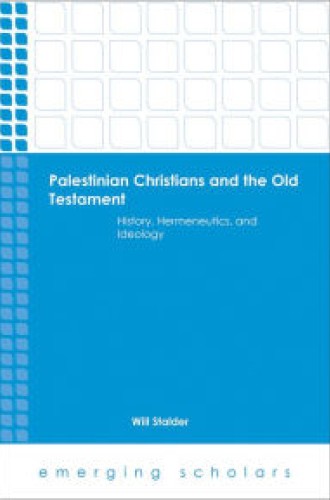Hermeneutics in a fragile land
Palestinian Christians almost disappear amid the seemingly endless brutalizing occupation by the state of Israel and counterviolence of the Palestinians. Will Stalder’s Palestinian Christians and the Old Testament is a revised dissertation from the University of Aberdeen that takes up the difficult and important question of how Palestinian Christians are to read the Old Testament when the insistent ideology of Zionism preempts the text with its claims concerning the divine promise of land to the Jews.
Stalder, a parish minister in Scotland, divides the history of interpretation by Palestinian Christians into three periods, each of which has offered possible postures of reading for the Palestinian Christian community—a community that Stalder characterizes as small, diverse, and declining. From the outset, the community was propelled by a variety of missionary initiatives in the Holy Land, notably by the Orthodox, the Church of England, and the Lutherans.
In the first period, to 1917, Palestinians very much trusted and embraced the views and practices of the missionary communities, all of which had a very high view of scripture. The missionary impetus was highly complex, given the readiness of Western powers both to challenge the Ottoman Empire and to nurture and protect independent Palestinian communities. The missionaries’ accent on the “Bible alone” caused people to read the Old Testament as part of “the history of redemption,” which, of course, culminated in the New Testament with claims for the gospel of Christ. In this early period the Old Testament was taken as unproblematic.





